Drones, software funded by PCPM to help out urban planners in Northern Iraq
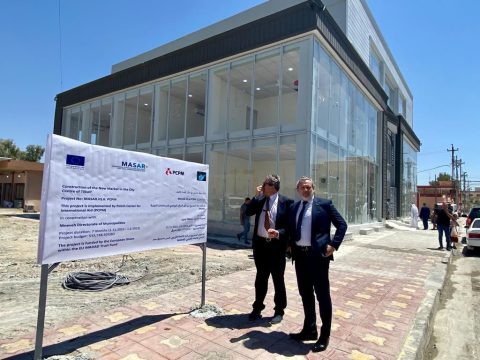
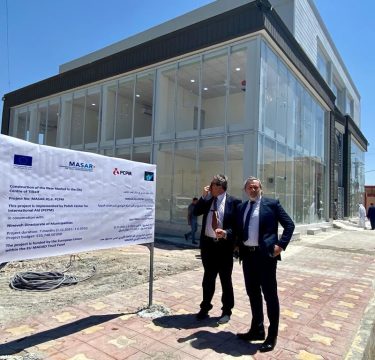
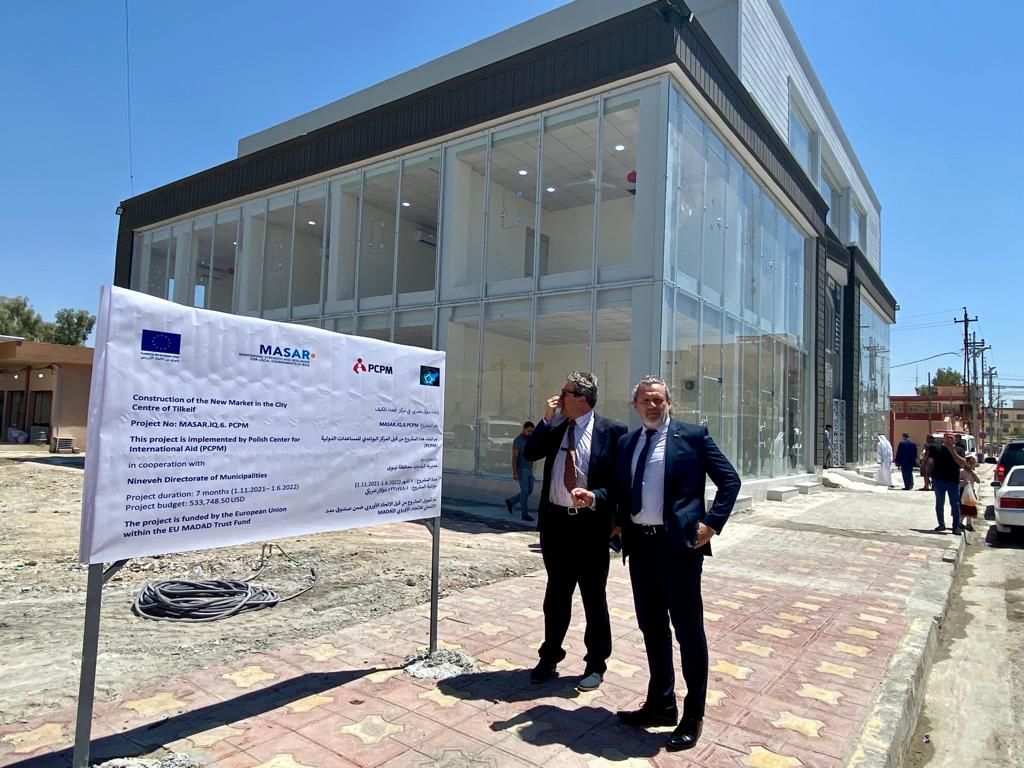
The PCPM Foundation provides municipalities with high-quality photos using the GIS software (Geographic Informational System) and comprehensive training on how to use such a system. The PCPM is responsible for project implementation involving supplying the municipal directorate in Dohuk province. PCPM equipped the Dohuk province with one drone and Nineveh province with two equipped with cameras, sensors, and the necessary software to create the orthophoto maps – maps used for spatial development.
The lack of urban spaces significantly hinders planning the spatial development of our city. One of our main problems because we cannot proceed with development works on adapted areas or plan improvements. We use a type-measure, which is time-consuming, inaccurate, and quickly outdated. The drone and its software allow us to improve utility services, design networks, and create the layout of the streets – said the Shekhan municipal head, Khalid Nermo Zedo.
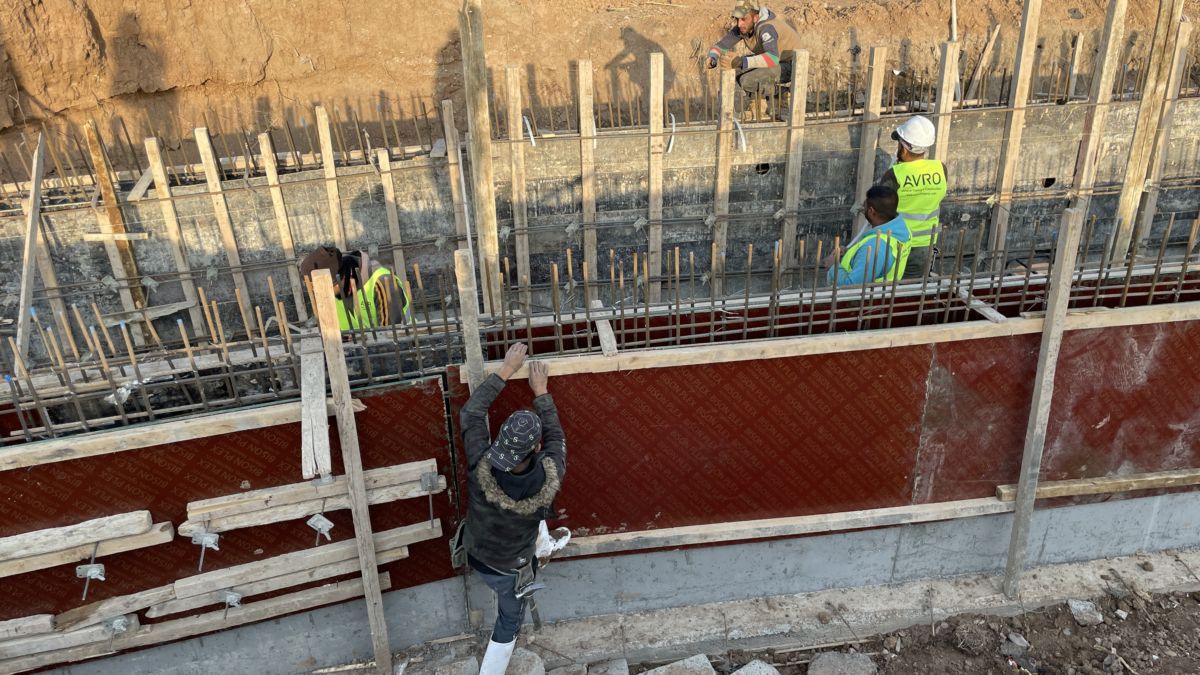
The equipment (specialized cameras and sensors) will be in Iraq in July and map the area and create accurate digital maps. These maps will help in urban planning, cadaster, land measurements for investments, residential districts, and delineation of roads, water, electric networks, etc. In addition, officials responsible for using the system will receive training in its operation.
We are currently at the stage of preparing a tender for the supplier of this system. The cost of purchasing the drones with instrumentation is $162,000, and the value of the project is about $200,000. In addition to the equipment itself – i.e., drones and computers – we will also provide the offices with appropriate training. We want the quality of the equipment to be top-notch. We do not want to settle for inferior equipment that can quickly fail. Or be not very precise’ – explains Jaroslaw Zarychta, PCPM representative in Iraq. ‘This is an important project not only for our municipality but also for neighboring towns and villages. An inventory of all houses, streets, and urban infrastructure will help in proper municipal services planning. For instance, in garbage collection, sewage and electricity supply, or urban expansion’ – adds Khalid Nermo Zedo.
Representatives of the local administration stress that the existing urban infrastructure does not meet the increased demand for municipal services resulting from the influx of more than 100,000 refugees from other regions of Iraq.
Kurdistan already struggles with a migrant influx from the federal part of Iraq over the past few years. In 2014, when militants from the so-called Islamic State entered Iraq and Syria, Kurdistan became a refuge for hundreds of thousands of people. The city of Shekhan had a population of 160,000 before 2014, with an influx of 120-140,000 internally displaced persons (IDPs) after 2014.
‘Although after the liberation of Mosul from ISIS, refugees returned to the federal part of Iraq. Nonetheless, about 60-80 thousand remained with us. The local authorities were already struggling with development problems even without this. With the support of the Polish Center for International Aid, we can improve the quality of municipal services and plan the construction of more houses and streets in the city. There are still three refugee camps in our municipality. Every year more of these people decide to move out of the camp and build their own homes’ – explained the head of the Shekhan municipality.
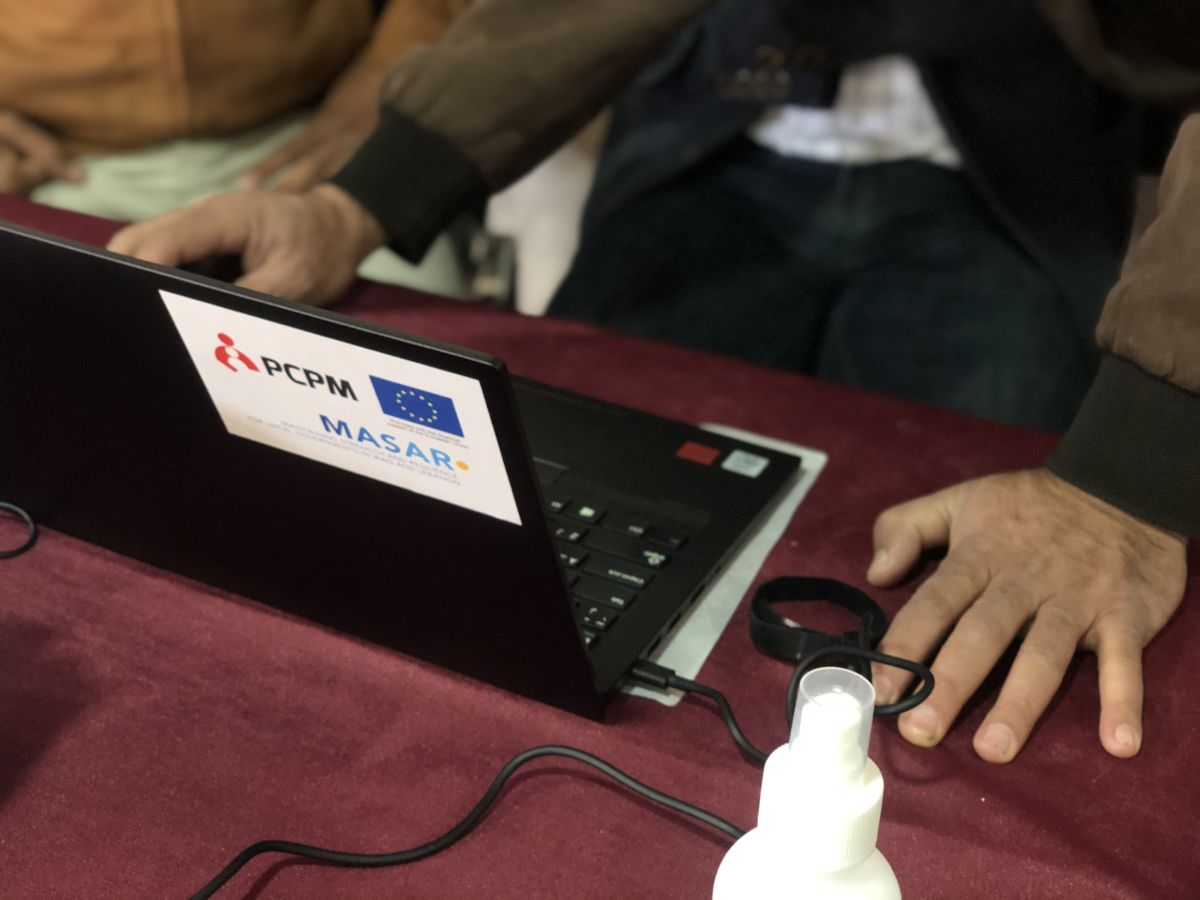
‘Local municipalities do not have maps – one has never had them, and others have disappeared. Telkeif or Mosul, for example, these maps were lost to the hostilities with ISIS. He destruction, theft, or damage to computers in the offices. Hence the need to implement such a modern system’ – Jaroslaw Zarychta of the PCPM adds.
The Polish Center for International Aid is one of the contractors of the MASAR(Maintaining Strength and Resilience for Local Governments in Iraq and Lebanon). Project funded by the European Union. The PCPM supports Iraqi local governments with, among other things, investments in water infrastructure, capacity building for effective territorial management and spatial planning, and boosting local economic development. Unfortunately, the Polish Center for International Aid’s mission in Iraq is in danger. The operation is close to closure unless the PCPM Foundation will attract other resources for operations in the country beyond the EU project, which ends in December 2022.
Follow us on social media:
We publish current information on the aid provided by the PCPM Foundation on Twitter.
Foundation’s official profile on Instagram – @fundacjapcpm
Foundation’s official Facebook profile – Polish Center For International Aid